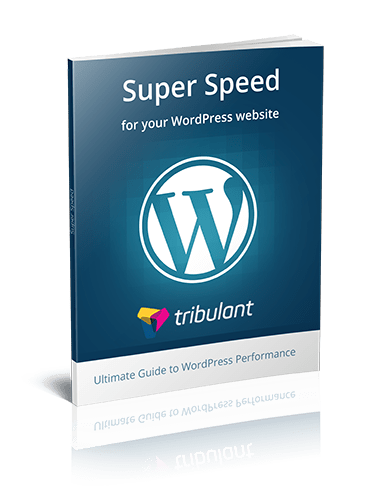
Choosing Between Two Platforms: WordPress VS Drupal

The difference in the market share held by the most popular Content Management System, WordPress, and the fourth most popular one, Drupal is extremely pronounced – 63% and 2.8% respectively. Naturally, this is not to say that WordPress is necessarily a better fit for everyone, it is just a more approachable, beginner-friendly platform.
At the same time, just because Drupal requires more expertise in some areas, it doesn’t mean that it’s more versatile or more advanced than WordPress in all of them. The choice will ultimately depend on your (or your staff’s) level of proficiency; specific demands imposed by the type of the site you intend to build; its security requirements; expected traffic; budget constraints, etc.
Before we begin listing the pros and cons of these platforms, it needs to be said that they are both free, and that you should definitely give them both a try before making the final decision.
Costs
Didn’t we just say how they were free? Well, technically they are. While you won’t pay for the use of the platform itself, you still need to pay for the domain and hosting; site development; maintenance, security, a particular plugin; premium themes and range of other goodies.
While the fact that Drupal requires more expertise (and hence, money) to build and that its frequent updates sometimes require the site to be fundamentally reworked and updated every couple of years may make it seem like it is the costlier solution, but that is not necessarily true.
While WordPress websites are cheaper up to a point, if you are building an enterprise-level website that needs to offer specific demanding features, you might be better off with Drupal in the long run, even with the added cost of perhaps having to outsource some of the work.
“So, if I’m building a simple website, WordPress is the better choice?” – Not quite. While you could build a practically cost-free WordPress website, its appearance and functionalities would be quite lifeless. Just the price of plugins and themes could set you back quite a bit.
On the other hand, if you are building the site on your own, and you have the necessary skills, the huge majority of Drupal’s equivalent to plugins – modules, are free, and allow you to easily endow your site with amazing capabilities, regardless of how much you’ve invested in its other segments.
Flexibility
We’ve already made it clear that WordPress is easier to use than Drupal, but we’ve also mentioned that Drupal is more adaptable and versatile. So, what is flexibility in this context, and who’s winning? Well, it depends.
If you are running a large, but a relatively straightforward site relying on a constant content influx and heavy editorializing, WordPress would probably serve you better. Since a number of your employees would need to edit the site itself, upload or modify content, fiddle with the images, etc., you want something that even a layman can quickly learn to operate with a decent amount of reliability. In other words, if your website is a collaboration between a number of people, and not all of which are necessarily too tech-savvy, go with WordPress.
On the other hand, if you are building something that you can’t even imagine the final incarnation of before volumes of user feedback, internal testing and moderate to heavy updates, for instance, a community platform of some kind, Drupal will give you all the options you could want. From minor tweaks in user interactions to huge overhauls of the entire platform, not only will you have more options, but the ones also present in WordPress will usually be better implemented in Drupal.
Security
This is a tough one. While WordPress has reported drastically more attacks over time, this is more a symptom of its popularity than of some overall vulnerability. Luckily, WordPress has an array of plugins that can help you keep your website safe. Even if you own a small website with low traffic and think it won’t be interesting to hackers, smaller websites are actually easier targets for malicious attacks. So, you need to take your WordPress website security seriously. Do your research about the most common security issues and check out this comparison of different WordPress security plugins to choose the best one for you.
While WordPress has a much larger repository of different security plugins, Drupal is not lagging far behind, at least in the number of functionalities they offer.
Drupal has had its share of issues with not one, but three Drupalgeddons in the relatively recent past, but its active community is always lightning fast with their responses, and committedly vigilant in the prevention of issues of this kind.
Both platforms, either bare-bone or through plugins and modules offer:
- Monthly security patches
- Login attempts logging
- Clickjacking protection
- Two-factor authentication
It’s also important to note that, unlike WordPress, Drupal doesn’t offer automatic updates of the CMS itself, meaning that when a new version comes out, you need to update the old one yourself. If you don’t think you’ll be able to consistently apply these updates as soon as they come out, maybe you’ll be safer with WordPress.
Conclusion
You may have noticed a recurring theme – if you are tech-savvy and prepared to invest a lot of time and money into the development and maintenance of your website, you’ll do better with Drupal. If, on the other hand, you have lower demands and want a more casual webmaster experience, WordPress is the CMS for you. Follow this rule, determine your priorities, and you should have no problem with choosing the right platform for you.
Earn Money by Referring People
Refer customers to us with your affiliate link and earn commission on sales from your link.




There is no doubt that WordPress is the most popular content management system. It is very user friendly and SEO friendly. It is also one of the most cost-effective CMS to develop websites.